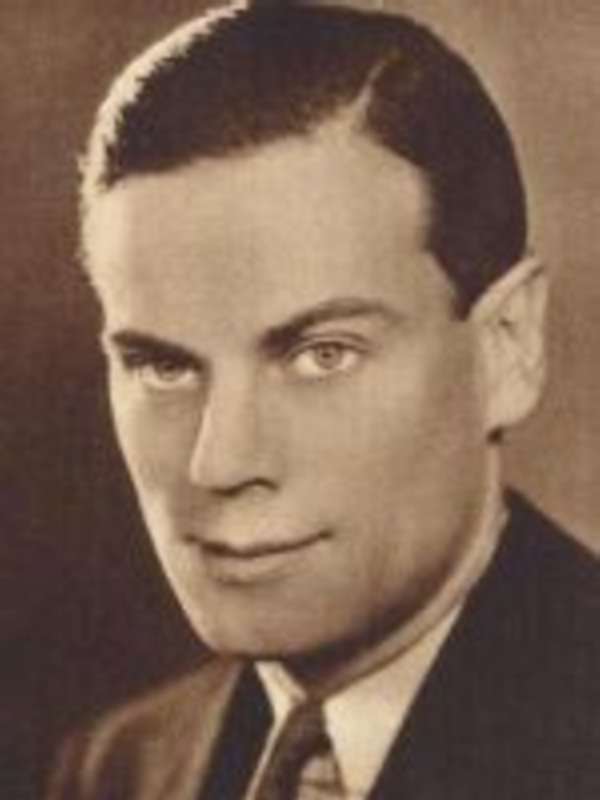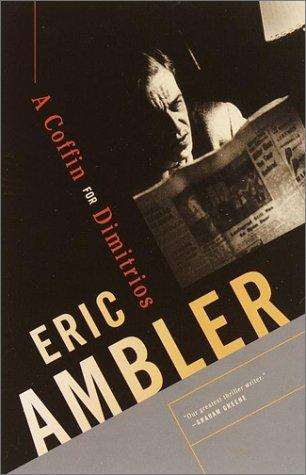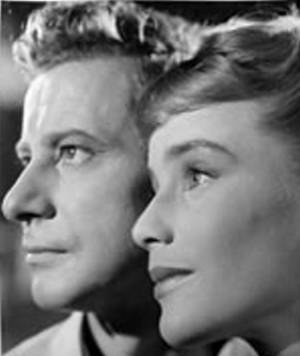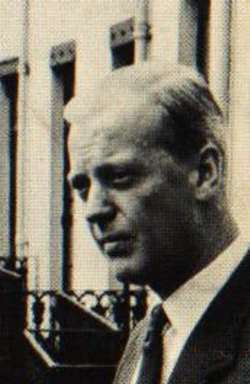
THE HANDSTAND
june 2005
Joe Ambrose

Like the dope-fiend, who cannot move from place to place without taking with him a plentiful supply of his deadly balm I never venture far without a sufficiency of reading matter. Somerset Maugham
I became interested in Eric Ambler when some
English paperback house did a reissue of his best known
books, The Mask of Dimitrios, and Judgment of Deltchev.
I’m into those old Sydney Greenstreet/John
Houston/Orson Welles/Mittel Europe noir thrillers, and
Ambler contributed more than his fair share to that whole
niche of literary culture. Ambler is one of those
scarce-enough great writers who declined with age. There
must be a lesson for all of us in this.
I read Judgment in Deltchez one night in Fes
after watching Gladiator in French in one of about ten
perfectly preserved French Art Deco cinemas in Fes’s
Nouvelle Ville. That was a year ago. Now I’ve been
reading the furtive sweaty fiction of Eric Ambler on
three continents.
Ambler’s work divides into two distinct
phases and periods; the stuff he wrote before he retired
and what he did after he came back.
In the thirties he wrote Deltchev, Dimitrios,
and other Hitchcock/Graham  Greene type visions of European life under
threat, full of men without passports crushed by
dictatorships and liberal corruption, sinister Turkish
police chiefs who knew everything about fine wines and
the refined arts of physical torture. The narrators, like
the young Ambler, were often chaps from England with a
grounding in engineering, electricity, or some other new
world of science. This was smooth hip material, very
zeitgeist, very politically aware, very astute. No wonder
the noir directors ate it up and made Ambler a bankable
Hollywood name.
Greene type visions of European life under
threat, full of men without passports crushed by
dictatorships and liberal corruption, sinister Turkish
police chiefs who knew everything about fine wines and
the refined arts of physical torture. The narrators, like
the young Ambler, were often chaps from England with a
grounding in engineering, electricity, or some other new
world of science. This was smooth hip material, very
zeitgeist, very politically aware, very astute. No wonder
the noir directors ate it up and made Ambler a bankable
Hollywood name.
Then, just like it happened to everyone else,
World War II happened to Eric Ambler. This writer on
twisted loyalties, state police, nascent corporate life,
and cynicism in high office found himself playing an
active role in his nation’s intelligence
skullduggery. After the War, ironically, he didn’t
reinvest his fiction with the vast range of material he
undoubtedly came across in intelligence. Instead he
disappeared off into the glitzy world of moviemaking
where he no doubt became even richer than he already was.
Then there was a fiction comeback when Eric grew
older, when his cool barometer and his shit detector were
no longer working properly. By the early sixties he was
banging out a thriller a year. They sold and sold and
sold, often converted into lousy movies or TV
serializations, occasionally giving rise to the likes of
Topaki. Anyone who ever watched TV on a Sunday afternoon
has seen Topaki.
There was a seedy side to Phase Two Ambler. The
early books dealt with the dilemmas of young men who were
fit, impoverished, or alienated. When Ambler grew middle
aged he wrote about middle aged fellows with dodgy money
in the bank who had their fair bit of fit pussy and
chicanery. Some of these later efforts, like The Night
Comers and Journey Into Fear, were tight pieces of
fiction. He was no longer in the same league as Graham
Greene or Len Deighton; later Ambler is like early
Frederick Forsythe. The heroes can be somewhat shifty,
semi-comic, English men, sometimes overweight but always
with a taste for brassy women. Later Ambler is nastily
anti-Islamic, though sharp as ever in his perception of
exactly what Islamic fundamentalism was, given that
I’m talking about novels written in the early
sixties.
Where once he delivered books eagerly awaited by
intelligent Hollywood, now his work seemed to be packed
full of putative starring roles or lucrative cameo
appearances for cynical Swinging Sixties quality hacks
like Richard Harris, Sophia Loren, Michael Caine, or Rod
Taylor. There was a lot of square stuff about the younger
generation going to go go parties, older chaps in dinner
jackets getting ready for cocktail parties attended by
air hostesses and traveling salesmen. The women can be
Asiatic bitches trying to fulfill the sexual needs of two
masters. One is a badly paid but decent local husband
while the other is the Peter Ustinov-fat Danish manager
at the local canning factory. Women are treated like real
human beings in the early Ambler. Post War Ambler is
loaded down with sexism, crudely displayed in some of his
paperback covers. There are oriental babes, Scandinavian
babes, Communist spy babes, London sluts, and Hollywood
bitches. The heroes are still men without passports or
papers  only
now they provide roles best suited to Robert Morley or
David Niven, not Peter Lorre or Humphrey Bogart.
only
now they provide roles best suited to Robert Morley or
David Niven, not Peter Lorre or Humphrey Bogart.
I sometimes think that the delicacy and accuracy
with which mysoginistic writers observe women is
underestimated. It is certainly an obsession with women,
and perhaps it is the converse, parallel, rather than the
opposite of love. I would hate to be one of those
handsome male writers of boring sensitive shit read
almost exclusively by dumb bitches with large wardrobes
who are that little bit too smart for their local writing
circle. I’m thinking of male model scribblers like
Paul Auster or Bruce Chatwyn.
One of my personal benchmarks for fiction is the
manner in which it deals with women. You can tell a good
writer, male or female, by looking at the way he or she
handles women. Despite many economic and political
changes, it remains the case that the life of a man is so
much easier to write about than that of a woman.
Writers tend to be good at hotels. They end up
spending more time in them than any other sector of
society (other that similarly dysfunctional brothers like
businessmen and traveling salesmen.) What with available
hall porters, whores in the foyer, sluts on the loose,
inevitable voyeurism, hotels are the very stuff of
writing. And not just the Chelsea. My favorite Charlotte
Rampling movie is The Night Porter. Back in those days
Dirk Bogarde was cooler than ever. Later he grew old and
came on all homo.
Me and Frank Digger were involved with a second
hand book business in
I didn’t do all that much traveling in
those days - in fact I’d never been out of Ireland -
but now I do travel all the time so I utilize a slightly
moderated version of that Yank’s philosophy. I agree
with him that reading is about the most secure anchor a
real travelers can carry with him. I do buy the cheapest
editions I can lay my hands on but I tend to dispose of
the whole book at the end of reading , rather than tear
it apart as I go. I remember looking back  guiltily,
having left an old Penguin copy of Gun for Hire by Graham
Greene on a beach on Portugal’s Atlantic coast. Some
of the cheap hotels you stay in like to hold on to
English language editions for the next lonesome drifter
passing through town.
guiltily,
having left an old Penguin copy of Gun for Hire by Graham
Greene on a beach on Portugal’s Atlantic coast. Some
of the cheap hotels you stay in like to hold on to
English language editions for the next lonesome drifter
passing through town.
My pal the writer and performer Kirk Lake told
me one day, when I was buying a load of cheap disposable
paperbacks before I took off on my travels, when he
noticed an Ambler in my pile, that his girlfriend had
been Ambler’s nurse during his last lonely years in
Notting Hill. She told Kirk that he was a very sweet man
to work for.